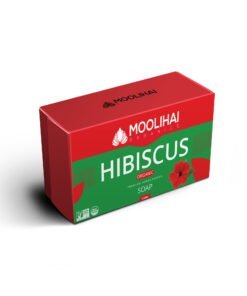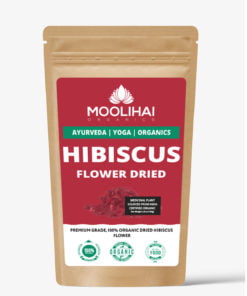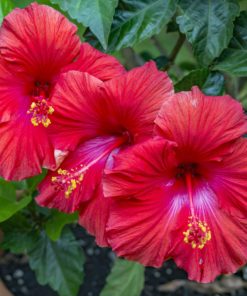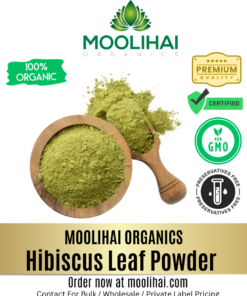Info
Beneficial Effects of Hibiscus Rosa Sinensis
Recently updated on December 23rd, 2021 at 12:16 pm
Hibiscus is a flowering plant that belongs to the genus Mallow in the Malvaceae family. In general, hibiscus is not a name for just one plant, but a collection of several hundred species, which is why the botanical name of all the plants in it begins with the name Hibiscus.
Native to the tropical, subtropical, and temperate regions of the world, this species is famous for its exotic, large, and colorful flowers.
These plants are most commonly called Hibiscus and rarely called Rose Mallow. It is also known as Tropical Hibiscus, Rose of Sharon, and Hardy Hibiscus. All perennial herbaceous plants of this genus grow as annual plants, and this species includes short shrubs, wood shrubs, small trees, and trees.
Plants such as Hibiscus rosa-sinensis and Hibiscus syriacus are often widely cultivated as ornamental plants.
The generic name Hibiscus is derived from the Greek name ἰβίσκος (ibískos), which is the name given to the perennial species Althaea officinalis by the Greek botanist Pedanius Dioscorides.
Hibiscus Tea is highly preferred by people all over the world for its medicinal properties. This beverage is red in color and has a sour taste and is high in Vitamin C.
What is Hibiscus Rosa Sinensis

The perennial plant of Hibiscus rosa-sinensis is thriving in some parts of tropical Asia, and these medicinal plants, especially known as “Sembaruthi” in all homes of India, are grown for decorative purposes as well as for medicinal purposes. Hibiscus rosa-sinensis was named by the Swedish botanist Carl Linnaeus and published in 1753 in his book “Species Plantarum“.
These tropical hibiscus plants also have common names such as China Rose, Rose Mallow, Chinese Hibiscus, Shoeblackplant, Hawaiian Hibiscus. Its flowers are not directly related to roses, although the Latin word rosa-sinensis means “Rose of China“.
These plants can grow as a shrub, evergreen shrub, or small tree, about 8–16 ft tall and 5–10 ft wide, producing glossy leaves. The flowers of Hibiscus are large, 10 cm in diameter, 4-18 cm wide, 5-petalled, trumpet-shaped. They come in many colors such as red, white, pink, peach, orange, purple, and yellow.
The anthers are orange-tipped red in color on these transparent flowers. The plants in the early days produced only single and a few colors of flowers, and are now giving double flowers in different colors due to hybridization. Very differently, the colors of the flowers that bloom on H. tiliaceus and H. mutabilis plants vary according to age.
At the base of each hibiscus flower, bud is a green calyx, the sharp ends are called sepals. When the buds of the hibiscus plant begin to expand their petals appear in many colors. All the female parts of the flower, including the ovary, are located in the main structure called the pistil (long tube-like structure).
Unlike other flowers the male and female flowers are not separate, the hibiscus rosa-sinensis plant flowers have both male and female parts. The 5 hairy red spots on the surface of the flower are the stigma of the flower, the pollen collects in the stigma area on the top of the pistol, the “style” is situated in the middle.
The ovary of the flower is at its base, while the male part of the flower has stem-like fibers, producing pollen, where each individual strand produces pollen.
The male organ called stamen produces various stem-like filaments, and each filament ends with anthers that produce pollen. These anthers combine with the filament to form stamen, the male part of the flower.
Overall, the flowers of Hibiscus rosa-sinensis have a single axis, dicotyledon, 5 lobes, axillary placenta, 5 sepals, superior ovary, 5 carbs, regular symmetry. The plant has erect, branched, rounded aerial stems and taproot roots. The leaves are alternate phyllotaxy with strong petioles, and the concentrated leaves are ovate and pointed.
16 Health Benefits of Shoeblackplant

The leaves, stems, and flowers of the hibiscus rosa-sinensis plant are often used to treat a variety of ailments. In particular, various research results have demonstrated that tea made by dried hibiscus flowers offers numerous health benefits. Here you can see how this plant produces exotic flowers, promotes physical health and its various medicinal benefits.
1. Possesses Antifertility Properties
Today, more than 100 million women worldwide utilized Hormonal Contraceptives, which is the artificial birth control method.
Although it has been proven that this artificial method of preventing pregnancy can cause various side effects for most people, this method is the most sought after.
However, studies have shown that hibiscus rosa-sinensis has anti-fertility properties, making it effective as a natural contraceptive with no side effects when prescribed properly.
The juice extracted from the flowers and stems of the hibiscus plant is used in various traditional medicine around the world as a natural abortion and contraceptive.
Studies were performed on mice to test the anti-fertility properties of the hibiscus plant, and in this study, Hibiscus plant extract showed excellent improvement in preventing fertilization in mice.
It is noteworthy that ancient Ayurvedic and Unani references contained extensive texts on the contraceptive and abortion properties of hibiscus flowers. These herbal plants contain plant-based compounds called phytoestrogens which are responsible for various potential functions of the body.
In a randomized study, some men were given the juice of hibiscus flowers for 45 consecutive days, eventually, it proved to have an antispermatogenetic effect on them.
2. Promotes Cardiovascular Health
High blood pressure is one of the most important causes of heart disease and if the blood pressure is kept under control it will not cause any damage to the heart. But when the blood pressure rises, and when the antioxidant pressure in the blood rises, they can greatly affect the heart and cause heart attacks and chest pains.
Hibiscus rosa-sinensis is very effective in lowering blood pressure and regulating blood flow. For people with heart problems and high blood pressure, the daily use of hibiscus extract or its dried flowers can make a difference.
In addition, the intake of stem extract prevents the accumulation of fat in the blood vessels and reduces the amount of cholesterol in the blood.
Due to this process, the blood flow is better improved and therefore the risks of heart attack are effectively reduced. Stress is another factor that can interfere with the normal functioning of the body and heart, in this case, Hibiscus can help to reduce stress.
3. Has the Potential to Fight Cancer
Antioxidants are chemicals that prevent the damage caused by free radicals and control their effects, which are usually available to the body through the natural food we consume on a daily basis.
The hibiscus plant is high in antioxidants that help balance the free radicals and protect the immune system. It also prevents damage to other cells in the body by free radicals.
Often, high levels of antioxidants are involved in the beneficial process and effectively inhibit the growth of cancer cells and tumor growths.
Hibiscus extract has both anti-cancer and anti-tumor properties. Studies have shown that hibiscus juice helps greatly in preventing and suppressing cancerous and life-threatening tumors.
4. Acts as a Diuretic
A natural substance that increases the production of urine is called a diuretic, and research shows that these types of natural compounds are found in significant amounts in the hibiscus plant.
Diuretics stimulate urine production and increase the rate of urination, thereby flushing out harmful toxins and waste in the body. Hibiscus rosa-sinensis flowers or leaf powder containing mild diuretic can easily cleanse your body naturally.
The diuretic property of hibiscus flowers is useful in relieving various conditions such as kidney disease, heart disease, high blood pressure, liver cirrhosis. In addition, these plants carry out processes that reduce the level of uric acid in the blood.
Kidney stones are caused by the accumulation of uric acid in the kidneys, and studies found that hibiscus extract inhibits the growth of kidney stones by effectively reducing the level of uric acid.
5. Ameliorates Liver Health
Hibiscus rosa-sinensis plants are high in antioxidants that play an important role in the healthy functioning of the liver. Hibiscus is used traditionally as an excellent medicine to reduce liver inflammation, protect the liver, and enhance liver health.
Hibiscus root extract was given to people with Hepatic Steatosis (accumulation of triacylglycerols & cholesterol in the liver). At the end of this study, the persistence and development of cholesterol-dependent liver steatosis were found to be significantly lower.
The common plant pigment Anthocynidins is abundant in the petals of hibiscus flowers, providing the protective effects needed by the liver.
6. Controls Blood Sugar Level
Various parts of the hibiscus plant have the ability to effectively lower lipid and blood sugar levels. In particular, the flowers of this plant are famous for treating diabetes.
Diabetics have been shown to have potent results in effectively lowering their blood sugar levels by drinking tea made from hibiscus flowers daily.
In a study published in the Indian Journal of Clinical Biochemistry, induced diabetic rats were studied. Of these, rats were regularly medicated with an extract of hibiscus flowers, which concluded that the rats’ blood sugar levels were significantly lower.
Besides, another animal experiment proved that the extract obtained from the leaves of the Hibiscus plant has high antidiabetic properties. A study published in the Journal of Ethnopharmacology found that ethanol is present in the extract of hibiscus flowers.
Test-tube studies have shown that ethanol-containing extracts lower blood sugar levels when internally ingested. Researchers report that these properties of hibiscus juice, which lowers sugar levels, have similar properties to the prescribed glibenclamide drugs for diabetics.
7. Relieves All Hair Problems
The leaves of the hibiscus plant treat various types of hair and scalp problems such as dandruff, itching, hair loss, dull hair, dry hair, and scalp patches. The paste of the leaves moisturizes, brightens, nourishes, strengthens the hair, and controls hair loss.
Also, the extract of the leaves gives a darker color to the hair. The tonic made from the petals of these flowers acts as a natural dye and prevents graying of the hair.
Research has shown that the petroleum ether extract of the leaves is more powerful than the extract of hibiscus plant flowers, and is more active in promoting hair growth.
Various traditional medicines of the world including Ayurveda highly recommend Hibiscus plant leaves to treat hair and scalp problems. However, both the flower and the leaves of this plant promote strong hair growth.
The tonic of hibiscus flowers contains hyaluronic acid and linolenic acid which can improve the strength of hair and stimulate its growth. Applying hibiscus oil on the scalp stimulates strong hair growth.
8. Supports Skin Enrichment
The extract from the flower of the hibiscus plant has been used extensively since ancient times to treat skin problems. Hibiscus extract is still used today as an important ingredient in various skincare products.
Hibiscus extract, which is a powerful antioxidant, is a rich source of vitamin C. Hibiscus flowers are a great supplement in the process of preventing acne caused by bacteria and excessive secretion of sebum.
High in anti-inflammatory properties, these flowers reduce the appearance of wrinkles and blackheads on the skin. Besides, these enhance the elasticity of the skin thus helping to keep it soft and firm.
Hibiscus flowers also carry out the process of removing lines, marks, wrinkles, etc., thus retaining the youthful appearance. It acts as a natural moisturizer and treats various skin conditions such as eczema, psoriasis, red patches, white patches, rashes, and scabies.
Hibiscus keeps the skin glowing, moisturized, supple, and fresh by removing toxins, dead cells, and impurities from the skin.
9. Aids in Weight Loss
Research shows that hydro citric acid is found in the flowers of the hibiscus and this acid is commonly found in medicines prescribed for weight loss processes.
So overweight and obese people can significantly reduce their body weight by consuming tea made by dried hibiscus flowers daily. The main reason for the increment of body fat is the increase in the amount of starch and sugar.
The enzyme inhibitors in hibiscus flower extract greatly stimulate the release of amylase, which breaks down sugar and starch and prevents fat accumulation in the body.
In a study of overweight mice, the flowers of this plant were shown to significantly reduce weight, and they also pave the way for reducing the absorption of starch and sugar.
Hibiscus flowers act as a natural laxative and reduce constipation problems and have diuretic properties that expel excess fluid from the body.
10. Slows Down the Premature Aging
The aging process is intensified due to cell damage caused by free radicals. Hibiscus is highly recommended to neutralize such harmful effects. This is because the high levels of antioxidants in these plants help slow down the aging process by neutralizing free radicals.
In addition, hibiscus plants contribute to the improvement of cognitive and brain functions. In an animal study published by the Indian Journal of Pharmacology, participants were given hibiscus juice.
At the end of the study, participants were shown to have effectively reduced dementia, age-related forgetfulness, reperfusion injury in ischemia, and cognitive disorders. Thus it’s highly recommended for the elderly with dementia and cognitive impairment.
11. Treats Various Respiratory Ailments
Hibiscus flowers contribute greatly for the treatment of various respiratory problems such as asthma, bronchitis, and difficulty breathing. These greatly help in effectively eradicating respiratory tract infections and improving the health of the respiratory tract.
Hibiscus, which has antimicrobial properties, is very helpful in killing the germs in the airways and reducing their damage. It is noteworthy that the hibiscus has a unique place in the fight against respiratory infections from ancient times to the present day.
The extract of hibiscus flowers is an excellent source of vitamin C and is a beneficial remedy for coughs, colds, flu, sore throats, and mouth ulcers. Hibiscus is used as a traditional medicine in the treatment of bronchial cataracts.
12. Boosts the Immune System
Vitamin C plays an important role in promoting enzymatic production of certain neurotransmitters, repairing tissue, and promoting tissue regeneration. Hibiscus plant flower extract strengthens the body’s natural defenses as it is an excellent source of high concentrations of vitamin C.
It gives strength to the body to fight effectively against infections and physical ailments. The strong antimicrobial properties of these plants help fight viruses and bacteria that weaken the body’s immune system.
In-vitro studies upon humans demonstrated that the extract of hibiscus flowers has antibacterial activity.
13. Helps to Induce Quality Sleep
The flavonoids found in the flowers of Hibiscus rosa-sinensis, also known as China rose, react appropriately with monoamines to exhibit antidepressant properties. In a study of mice with neurological disorders, they were given hibiscus flower extract as medicine.
The study results showed that central nervous system disorders in rats were best treated and as a result they exhibited antidepressant activity. Researchers also stated that Hibiscus provides antidepressant effects for not only animals, but also for the human.
Hibiscus is important in relieving stress , insomnia and relaxing the body, thereby stimulating deep sleep. Those who have difficulty in sleeping and want to experience deep sleep, take the dried flowers or leaf powder of this plant orally
14. Accelerates Wound Healing Process
The combination of various chemical compounds in hibiscus leaf extracts accelerates the wound healing process. Furthermore, they help greatly in recovering damaged tissue and healing injured muscle areas.
Hibiscus extract was used externally on wounds in a study of mice with degenerative tissue. At the end of the study, it was revealed that on certain days their wounds healed and its positive results on the degenerated tissues.
Another study shows that the ethanol extract from the hibiscus plant is more effective in healing wounds than the nitrofurazone ointment, which is commonly prescribed for wounds.
Hibiscus stimulates collagen growth because increasing collagen growth in the injured areas accelerates the healing process.
15. Maintains Healthy Digestive System
Hibiscus helps greatly in promoting proper digestion. The flowers of the hibiscus plant help to break down the complex molecules of food and thereby provide energy. This procedure can easily treat digestive disorders such as indigestion and abdominal pain.
In addition, appetite is stimulated by regular intake of hibiscus flower extract, so it is advisable to children.
16. Benefits For Women
Hibiscus rosa-sinensis is very beneficial for women. That is, these plant flowers help in controlling excessive bleeding during menstruation and reducing menstrual cramps.
Hibiscus helps to soothe hot flashes that suddenly occur on the chest, face, and neck during menstruation, so women can take it in any form not only during menstruation but also on normal days as it has beneficial effects on the body.
A decoction of hibiscus flowers is used in many parts of the world, including India and Bangladesh, to regulate the menstrual cycle and to control the problems that occur during it. In China, Hot juice made by flowers and bark of Hibiscus is used to treat irregular menstruation.
How to Prepare Hibiscus Rosa Sinensis Products
Hibiscus Tonic

Ingredients :
- Hibiscus Flower Petals – 25 to 30
- Water – 500ml
Procedure : Approximately 25 to 30 hibiscus flowers should be well dried and mixed with 500 ml of water and heated on a very low flame and ensure that the water does not boil. After a while, the water will turn purple, after the water should be cooled well and stored in a container. This tonic can be used as a conditioner every time when shampooing your hair, or you can apply this tonic on your hair and let it soak for 45 minutes. Then wash the hair so that the color of the hair turns dark black.
Hibiscus Oil

Ingredients :
- Hibiscus Leaves – 2 to 3
- Hibiscus Flowers – 4 to 5
- Regular Hair Oil – Required Amount
Procedure: Put 2 to 3 leaves of hibiscus and 4 to 5 flowers in a blender and crush well. Heat the crushed hibiscus mixture along with the oil you apply to the scalp daily. Once the juice of the leaves and flowers is completely mixed with the oil, turn off the flame. Before applying this hibiscus oil on the hair, it should be slightly warmed. Then rub it well on the hair & scalp and soak for about 30-45 minutes and then wash off.
Hibiscus Tea

Ingredients :
- Dried Hibiscus Flowers – 2 Cups
- Sugar – 500 grams
- Water – 2 liters
- Lemon – 2
- Vanilla Extract – ½ teaspoon
Procedure: In a metal pot, add 2 liters of water and well-washed dried hibiscus flowers and put in the stove and heat over medium flame. Once the water has reached the boiling point turn off the flame and let the contents cool slightly. Sediments and dried flowers can then be easily removed by transferring this mixture to another vessel or cup. Add the required amount of sugar, lemon juice, and vanilla extract to this distilled water and mix well. The tea thus prepared can be served both hot and cold.








Ponnatharam Stone (Raw) | For Permanent Hair Removal
Vengai Paal | Black Bindi | Dhrishti Pottu | Vengai Pottu for Babies | 100% Natural
Dried Avaram Senna Flower / Cassia Senna Auriculata / Aavaram Poo / Tarwar / Amaltas Leaves / Senna Auriculata / Avaram Poo / Sanay / Alexandrina / Tanner’s Cassia flower
Natural Dried Moringa Flower – Moringa Oleifera – Drumstick Tree Flower – Murungai Poo – Munagaku Flower
Akasa Garudan Kilangu / Redfruit Creeper / Corallocarpus Epigaeus
Original Edible Camphor | Pacha Karpooram | Bhimseni Camphor
Saussurea Obvallata Seeds / Brahmakamal Seeds / Queen of the night / Sacred Saussurea Kon Kapfu / Brahma Kamalam / Nishagandha
Insulin Leaf Powder / Chamaecostus Cuspidatus / Costus Pictus / Spiral Ginger / Insulin Powder / Costus Igneus
Achu Pottu for Babies | Bindi Mould Set | Baby Seratta – 1 Set
Kaunch Beej Powder |Poonaikali | Velvet Bean Powder | Mucuna Pruriens | Kapikacchu | Natural Nervine Tonic & Muscle Builder
Aalam Pazham / Banyan Fruit Powder / Ficus Benghalensis / Marri Palu / Bargad / Dodda Alada Mara / Peraal / Vat Vriksha Powder
Traditional Vasambu Valayal for Babies | Calamus Bracelet | 100 % Pure & Natural